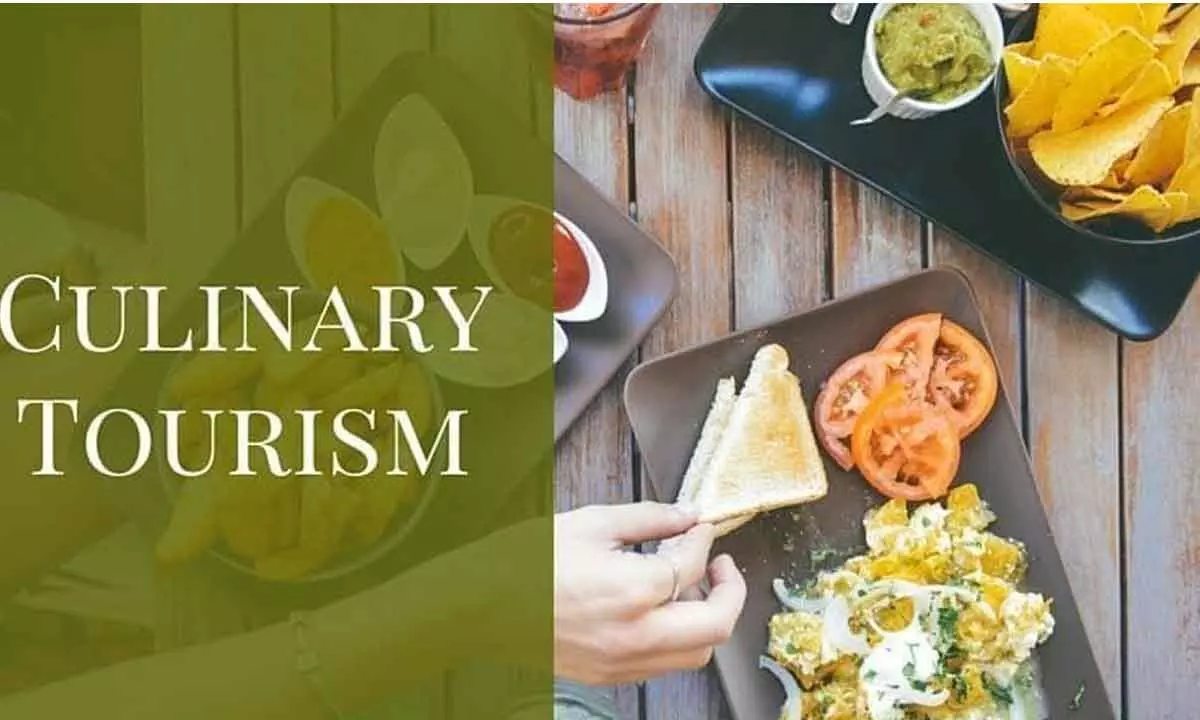Deliciously vibrant gastronomy tourism promotes environmental, social, and economic sustainability
image for illustrative purpose

As a next step in advancing environmental, social, and economic sustainability, Gastronomy Tourism will focus on the linkages between tourism, gastronomy and producers in fostering rural development, promoting sustainability and resilience, preserving cultural and natural heritage, and embracing innovation to enhance the tourism experience.
The UN World Tourism Organisation (UNWTO) defines rural tourism as “a type of tourism activity in which the visitor’s experience is related to a wide range of products generally linked to nature-based activities, agriculture, rural lifestyle/culture, angling and sightseeing”. It refers to these activities in non-urban, otherwise known as rural areas, which are characterised by a low population density, landscape and land use that is dominated by agriculture and forestry as well as a traditional social structure and lifestyle.
Sustainability in this context means using natural resources responsibly, across agriculture, fishing and even food preparation, so that we can continue to use them in the future – while also safeguarding the environment. In this sense, sustainable gastronomy is synonymous with cuisine that takes into account the origins of the ingredients: how they are grown and how they are brought to market and, ultimately, to our plates.
The endeavour is to raise awareness about the importance of sustainable gastronomy, as a form of cultural expression related to the natural and cultural diversity of the world. Due to the Covid-19 health crisis, sustainable gastronomy – celebrating seasonal ingredients and products, and contributing to the preservation of wildlife and culinary traditions – has become even more relevant.
IFAD, as an international financial institution dedicated to eradicating poverty and hunger in the rural areas of developing countries, seeks out initiatives that contribute to its mandate. ‘Back to the Roots’ is an IFAD-funded project that promotes innovations in rural development using gastronomy as a way of connecting small farmers to markets.
Food Tourism is the exploration of a destination through its unique culinary culture.
During travel, tourists are inquisitive and eager to explore the local cuisine of a destination which they are visiting since the food experience can be added to the whole travel experience at a minimal cost and effort. The memory of the place is taken back by the tourist not only through the local sightseeing but also through the taste of the food.
Food tourism can include activities like food walks, tea tasting, cooking classes, farm tours and various other activities directly or indirectly related to food and beverages.
Food Tourism is a rapidly growing sector of Indian tourism industry which so far has remained limited, though the potential not only lies in its diverse geography and history but also in the diverse culinary heritage.
India is bestowed with the gift of its own unique taste of local food in every city and state which can be a dedicated exploratory journey of a region or it can be combined with a regular vacation package to enhance the experience.
While some tourism businesses and destinations are keen to return to “business as usual” as soon as possible, for other stakeholders and commentators, the global pandemic provides a “transformational moment opening up possibilities for resetting tourism” on a more resilient and regenerative path.
In post-C0vid New Zealand, the argument that a changing perception of “local food” as a tourist experience has been influenced by a number of factors, including the experiences of lockdown, a growing awareness of sustainability and ethical concerns around food production practices witnessed globally, and perhaps, a growing maturity and confidence in what makes the country’s food culture unique.
For food tourists – whether they be international or domestic visitors, on an extended stay in a region or on a shorter excursion – food experiences offer the chance to test and taste new products and learn more about food provenance and historic and contemporary production practices.
For food producers, food tourism offers opportunities to diversify income streams and broaden distribution strategies. Engagement with food tourism may involve supplying food and drink to hospitality providers – such as hotels and restaurants – or engaging directly with consumers, through farm gate sales, site visits or more extensive food tourism experiences. There is generally a belief that direct-to-consumer sales offer greater returns to the food or drink producer due to the shorter supply chain.
The five ‘Thailand’s Hidden Dishes’ represent some of the lesser-known specialty foods that normally are available only when travelling to the destination. Tourists will be inspired to combine the experience of local dishes with exploration of attractions and things to do in Phetchaburi, Trat, Chiang Rai, Khon Kaen, and Phatthalung.
The promotion of ‘Thailand’s Hidden Dishes’ forms part of the TAT’s ongoing strategy to elevate the country’s status as a world-class gastronomy tourism destination, and to increase awareness on the diversity of its local food culture.

